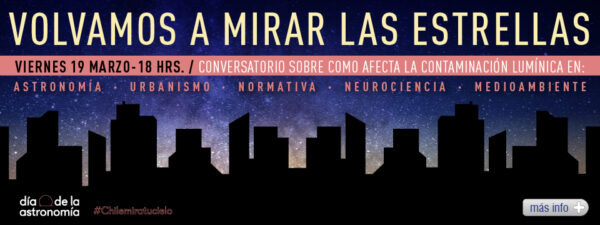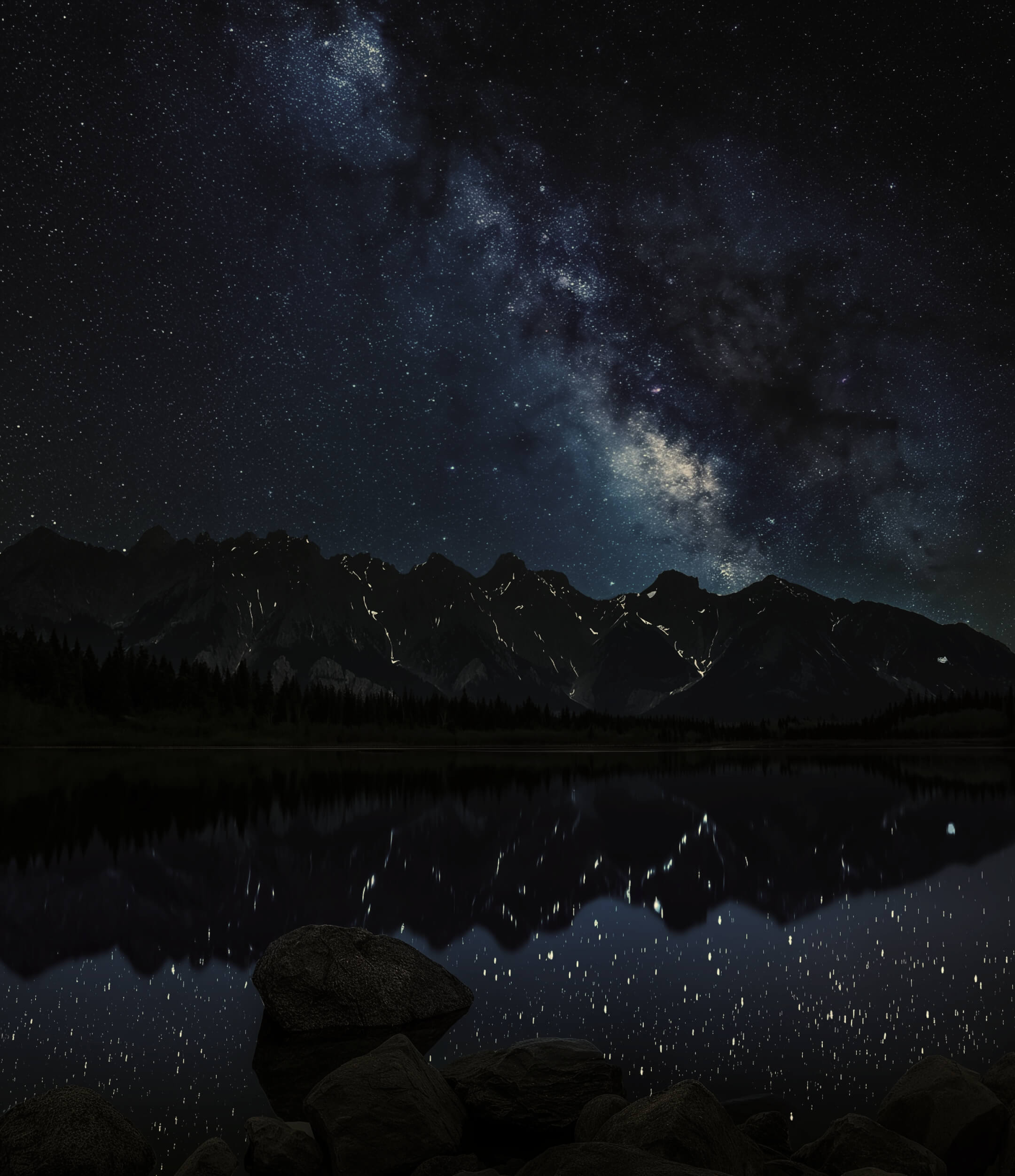Specialists call to recover the starlight


Posteado
Cielos Chile
schedule Thursday 11 de March
In the framework of Astronomy Day this March 19 at 6:00 PM, the Institute of Physics and Astronomy (IFA) of the University of Valparaíso (UV) together with Explora Valparaíso, from the Ministry of Science, have organized a virtual Conversation titled “Let’s Look at the Stars Again.” On this occasion, professionals from various disciplines will address the effects of light pollution on people, wildlife, cities, and astronomy.
The Seremi of Sciences of the Central Macrozone, María José Escobar, who will inaugurate the activity, highlights: “That Astronomy Day focuses on Light Pollution has a tremendous impact. This is a cross-cutting issue that not only affects astronomical research but also the health of people and wildlife. Addressing a topic from a multidisciplinary perspective makes it more interesting, robust, and also closer to the public. It is an issue that affects us all, not just astronomers, and that is why as a society we must first be aware of the problem and then participate in the solution.”
ASTRONOMY
To analyze the effects of light pollution in Chile, the activity will feature Dr. Eduardo Ibar, researcher at IFA-UV and Executive Director of the Chilean Society of Astronomy (SOCHIAS). With extensive work in this field, Dr. Ibar is currently investigating, through a nanosatellite, the level of light in northern Chile and around observatories. In this regard, the professional emphasizes that “the sky of Chile is somehow the gateway that connects Earth with outer space. The quality of Chile’s sky for astronomical observation is recognized worldwide. If light pollution is not effectively tackled, in a few decades we could lose this position.”
NEUROSCIENCE
“We have lost sleep,” comments Dr. John Ewer, biologist and doctor in neuroscience from the Interdisciplinary Center for Neuroscience of Valparaíso, who will refer to the effects of excess artificial light on the human body and the serious diseases to which a person who does not respect the biological clock of sleep is exposed. “By extending the day and using screen and cell phone light at night that contains a significant amount of blue light delaying the onset of sleep, we cause a decrease in the immune system which is essential to keep us healthy in these pandemic times.”
URBANISM
Paulina Villalobos, architect and expert in city lighting, nationally recognized as an active defender of the night as heritage, will attend this event to refer from her specialty to how a correct design of public lighting contributes to biodiversity. She is essentially concerned with urban health in terms of light and for this, she has worked on outstanding innovative projects such as the Family Park incorporating a lighting system that especially considers the protection of nocturnal life, for example, insects.” For the architect: “The light of public spaces should guarantee public health.”
REGULATION
In terms of protection systems, Pedro Sanhueza, Secretary of the Cielos de Chile Foundation and Director of the Office for the Protection of the Quality of the Sky of Northern Chile – OPCC, will present on regulatory advances and how our country is regulating light pollution emissions. In this same context, it is worth remembering that at the end of last year, a scientific commission was announced that was nominated by the Ministry of Sciences and Environment to protect certain territories from light pollution and review those that have unique characteristics for the development of astronomy. The group of six specialists defined with the support of the Chilean Society of Astronomy (SOCHIAS), is composed of María Teresa Ruiz, Eduardo Unda-Sanzana, Amelia Ramírez, Manuela Zoccali, Rodrigo Reeves, and Ricardo Bustos; who have the collaboration of the astrophysicist and Seremi of the Ministry of Science, Paulina Assmann, in addition to the director of the ANID Astronomy Program, Luis Chavarría.
ENVIRONMENT
To understand the importance of the impact that excess urban light has on wildlife, Valentina Colodro, veterinarian of the NGO Oikonos, will present. With a perspective from the territories, Colodro along with a team of experts have developed valuable work, such as the case on Juan Fernández Island and how light pollution has wreaked havoc on the petrels (seabirds native to the archipelago).
To participate in this conversation, interested individuals can register at https://us02web.zoom.us/webinar/register/WN_-Lg8RCkqQAO06m4tyvIPSg. Alternatively, you can connect to the social networks of Explora Valparaíso, the IFA-UV, and the Fonck Museum, on Friday, March 19 at 6:00 PM.

Subscribe to our newsletter
Receive relevant information about the skies of Chile every month
